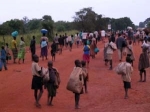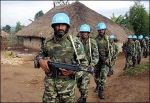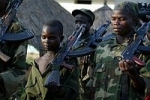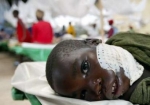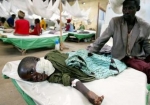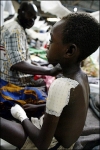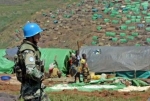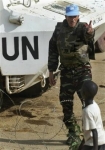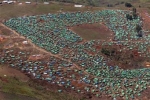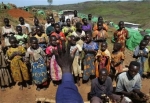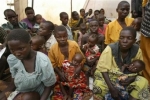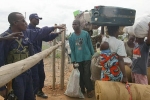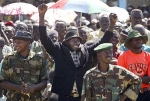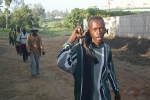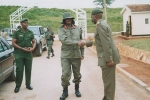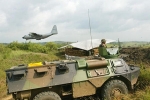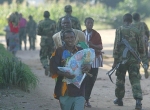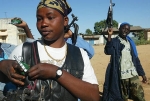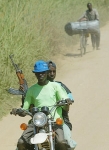Forced Displacement in Northern Uganda
A war against an un-armed populace has ravaged Uganda's northern districts since the National Resistance Army/Movement took power under Yoweri Museveni in 1986. The latest phase of the war, waged by the Lord's Resistance Army (LRA), has lasted more than a decade and has been characterized by widely publicized atrocities committed by the LRA, including the forced abductions of thousands of children, massacres of civilians, and widespread rape, mutilation, and looting.

The Ugandan Government's counterinsurgency has been brutal, and the civilian population, primarily of Gulu and Kitgum districts, has found itself caught between the violence of the LRA on the one side and the violence of the Ugandan Army, called the Ugandan People's Defense Forces (UPDF), on the other. The abuses by the UPDF are now coming to light, despite denials by the Ugandan Government and silence from the international community.
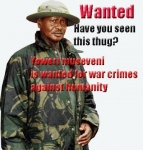
The UPDF has forcefully displaced the civilian population of the north several times in the course of the war, the most recent round beginning in 1996. Approximately 350,000 of Gulu district's 400,000 people have been forced into what the Government calls "protected camps," ranging in size from 1000 to over 50,000 individuals. Although the Government claims that people came to the camps of their own volition, those interviewed unanimously made clear that the UPDF had forced them into the camps, often by bombing and burning villages and murdering, beating, and threatening those who would not comply. Moreover, at present the UPDF does not allow people to return to their homes and regularly kills, tortures, or threatens those found outside the camps.
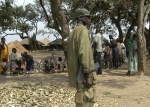
The camps confront a massive security crisis; the Ugandan military simply does not protect the interned civilians. When we visited Pabbo, a camp about 22 miles north of Gulu Town in Gulu district and containing around 50,000 civilians, only 40-50 reserve troops guarded the entire camp. The LRA can, and frequently does, attack at will. These reserve forces, the Home Guard, are poorly trained, undisciplined, and paid the equivalent of about US$17 per month. Lax recruitment procedures enable children as young as 12 and 13 to enlist, officials admitted.

The UPDF not only fails to protect the civilians, but it terrorizes them itself. In Pabbo, every reported rape, robbery, and three quarters of the murders since 1998 were alleged to be committed by UPDF soldiers. We and other NGOs have documented extensive and systemic extrajudicial executions, beatings, rapes, and death threats against the camp population by the Ugandan army; in fact, abuses by both sides are so common that villagers flee upon encountering any soldier in the bush, whether LRA or UPDF.
UPDF soldiers commit these crimes with impunity. The Uganda Human Rights Commission (UHRC) has no presence in the camps. Victims' access to police is difficult, and those making complaints against the UPDF can be subject to harassment, torture, and execution. When a complaint is made against a soldier, the UPDF commanding officer must detain the suspect; if the officer refuses to cooperate, there is no appeal. It is common for accused soldiers to either flee to other barracks or to be transferred out of the district to avoid prosecution.
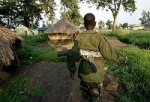
The camps make the civilians an easy target for both the LRA and the UPDF. We were informed by the UHRC that it had notified the President of the security problems in the camps, but to date nothing has been done to protect the interned civilians. Considering the Ugandan Government's extensive military resources, we conclude that the lack of security in the camps is, for some reason, intentional.

Status of Camps under the Ugandan Constitution. The 1995 Ugandan Constitution guarantees a wide range of rights, including rights to the freedom of movement throughout Uganda (Article 29), privacy of person and home (Article 27), and security of property (Article 26). Article 46 states that these rights are subject to derogation only when Parliament is taking measures "that are reasonably justifiable for dealing with a state of emergency." A state of emergency, according to Article 110, must be expressly declared by the President, and then renewed by the Parliament every ninety days. There has been no such declaration of a state of emergency by the President; therefore, these violations of basic civil and political rights are in no way constitutionally permitted derogations, and are illegal under Ugandan law. Violations of non-derogable rights, principally the right to life, and to freedom from torture and cruel, inhuman, or degrading treatment or punishment, are unlawful under any circumstances.
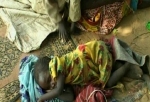
Status of Camps under International Human Rights Law. Additionally, these violations are breaches of Uganda's commitments under the international human rights treaties to which it is party, including the International Covenant on Civil and Political Rights and the Torture Convention. Many of the rights guaranteed by these instruments, notably the right to life and the right to freedom from torture, are non-derogable. Under the ICCPR, certain rights may be derogated from, but only when prescribed by law and when other States Parties are notified (Article 4), neither of which is the case.
Status of the Camps under Humanitarian Law. As the forced displacement and continued internment of the civilian population takes place within the context of an armed conflict, the Geneva Conventions apply.
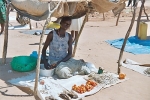
Common Article 3 to the Fourth Geneva Convention and Protocol Additional II to the Geneva Conventions Relating to the Protection of Victims of Non-International Armed Conflicts are, in IED/HLP's judgment, applicable to Uganda as the conflict there meets minimum requirements for a civil war. Grave breaches thereof constitute war crimes.
12. Article 13 of Protocol Additional II states, inter alia:
...The civilian population as such, as well as individual civilians, shall not be the object of attack. Acts or threats of violence the primary purpose of which is to spread terror among the civilian population are prohibited.
The UPDF's campaign of forced displacement in 1996 and the civlians' continued internment contravene this article, as the civilian population has been both object of attack and subject to acts and threats of violence intended to spread terror.
13. Article 17 of Protocol Additional II reads, inter alia:
...The displacement of the civilian population shall not be ordered for reasons related to the conflict unless the security of the civilians involved or imperative military reasons so demand. Should such displacements have to be carried out, all possible measures shall be taken in order that the civilian population may be received under satisfactory conditions of shelter, hygiene, health, safety and nutrition.
Even if imperative military reasons justified the creation of the camps, the Government's unwillingness to resolve the security and health crises is a violation of Article 17.
14. Finally, the Government is in violation of civilians' fundamental guarantees, articulated in paragraph 1 of Common Article 3 and Article 4 of Protocol Additional II. The latter states, inter alia:
...the following acts against the persons referred to in paragraph I are and shall remain prohibited at any time and in any place whatsoever: (a) Violence to the life, health and physical or mental well-being of persons, in particular murder as well as cruel treatment such as torture, mutilation or any form of corporal punishment; ... (d) Acts of terrorism; (e) Outrages upon personal dignity, in particular humiliating and degrading treatment, rape, enforced prostitution and any form of indecent assault;... (h) Threats to commit any of the foregoing acts. The actions of the UPDF against the civilian population of Gulu are in contravention of these guarantees.
15. Many of these violations constitute grave breaches as defined under Article 147 of Geneva Convention IV. Thereby, under Article 146 of the same Convention, the High Contracting Parties are "under the obligation to search for persons alleged to have committed, or to have ordered to be committed, such grave breaches, and shall bring such persons, regardless of their nationality, before its own courts."
16. IED/HLP calls upon the international community to execute its legal duties under humanitarian law and demand the cessation of war crimes committed by the Ugandan armed forces as well as by the LRA. We also call upon the international community to end all military assistance to Uganda while these violations continue. Finally, we demand that those responsible for these crimes be brought to justice as dictated by international law.

Uganda's number 1 war criminal "Yoweri Museveni"

